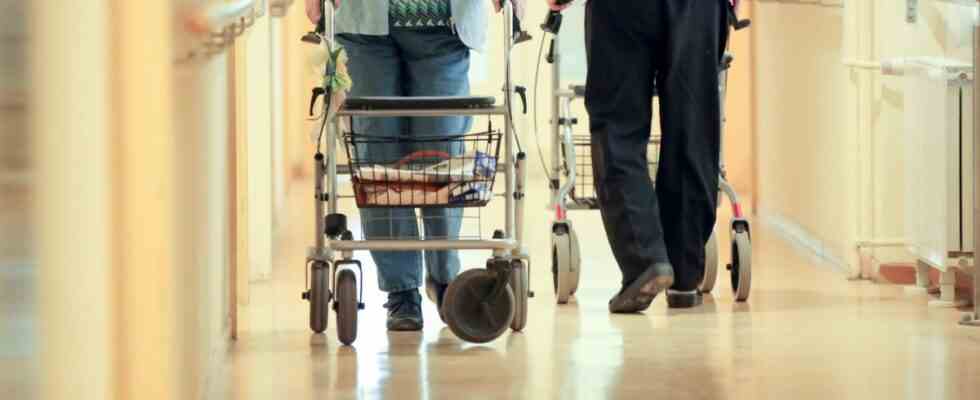You can indulge in the illusion that you will live the same way in old age as you did when you were younger, as long as there are no health problems and the money is sufficient. Sofie Langmeier and Anne Hübner do not harbor such illusions, even if they belong to different generations. Sofie Langmeier, city councilor of the Green/Pink List, belongs to the baby boomer generation and prefers to shape how she herself will live in maybe 20 years.
Anne Hübner, chairwoman of the SPD/Volt city council faction, is concerned about how her parents will be cared for. And is annoyed that, despite an initiative by her parliamentary group in 2020, little progress has been made in senior living. Both city hall politicians are anything but happy that the social department is primarily focusing on expanding the care places in homes: 1000 places are to be created by 2030.
Around three percent of the 8,500 beds in nursing homes are currently free, and another 300 cannot be occupied due to the shortage of skilled workers. “The care landscape is about to change,” says Hübner. The seniors wanted to stay in their own four walls for as long as possible. The image of old people’s homes in which seniors live for another ten or 15 years is completely outdated. The length of stay in inpatient care “goes down to half a year,” says Langmeier.
“Only people with dementia are there for a long time,” Hübner describes the situation. Despite all the advertising from home owners, most people today only move into a nursing home when all other solutions have failed. “Nobody who enters a nursing home wants to go there unless it is absolutely necessary.”
Consequences should finally be drawn from this: the two town hall factions are therefore in favor of reviewing existing plans, especially for the new nursing home in Freiham and the two Münchenstift dormitories that are soon to be renovated, the Karl-Rudolf-Schulte-Haus in Milbertshofen and the Margarete von Siemens House in Hadern. This raises the question of whether housing projects with outpatient offers or day and night care places would better meet people’s needs instead.
All plans for nursing homes in urban areas should, if possible, be replaced by such housing projects, the SPD and Greens demand: “The desire for independent living in old age, if possible in a familiar part of the city, is to be weighted much higher in urban planning in the future than the desire for a nursing place directly near the old apartment.” Green-Red emphasizes in an application that not every new district needs its own home, especially since the city already has 57 easily accessible homes. “But every older person should be able to live independently in an appropriate and affordable home for as long as possible.”
Munich has a dense network of retirement and service centers
It is also important to develop new models and take up role models from other cities: For example, the district care in Leipzig, where a group of helpers from neighbors takes over the basic care of people in need, coordinated by full-time staff.
For example, a neighbor can take care of carrying the shopping upstairs once a week, says Sofie Langmeier, or read aloud. Some things can be done on a voluntary basis, other activities, such as housework, would be remunerated. Although Munich has a very dense network of old people’s and service centers, in view of the shortage of skilled workers one must try to activate self-help even more.
The overall senior policy concept, which dates back to 2012, is also to be revised and supplemented. Sofie Langmeier emphasizes that special emphasis should be placed on support, participation and equal opportunities for older migrants. In order to learn from the experiences of other cities, Munich should also become a member of the “Age-friendly Communities” network, in which cities have joined forces to become more age-friendly through international exchange.
And last but not least, the Greens and SPD also demand that heat protection for old people in care be taken into account. In view of the heat periods, which are particularly stressful for those in need of care, suitable stays in the cool would have to be created.

